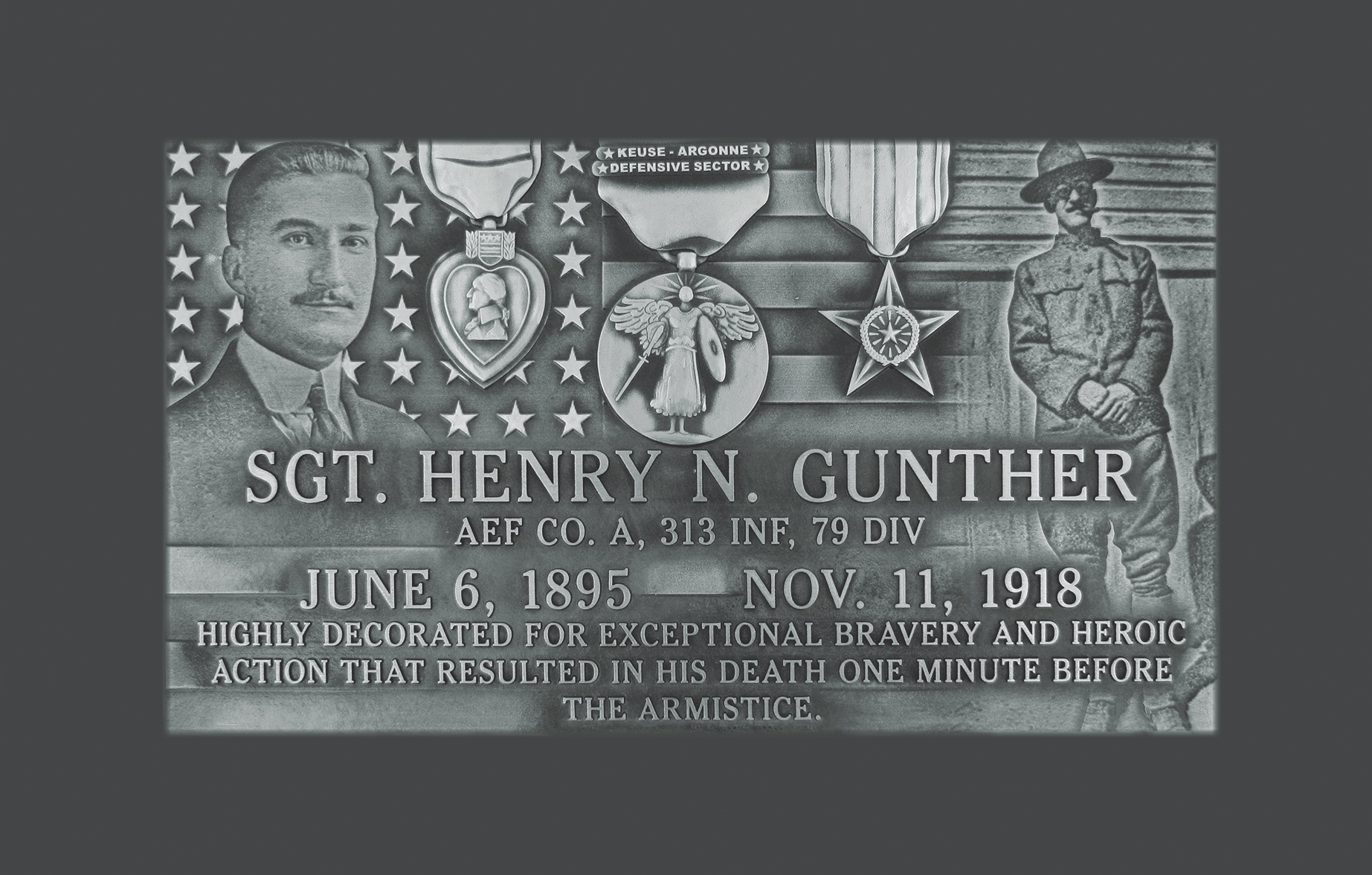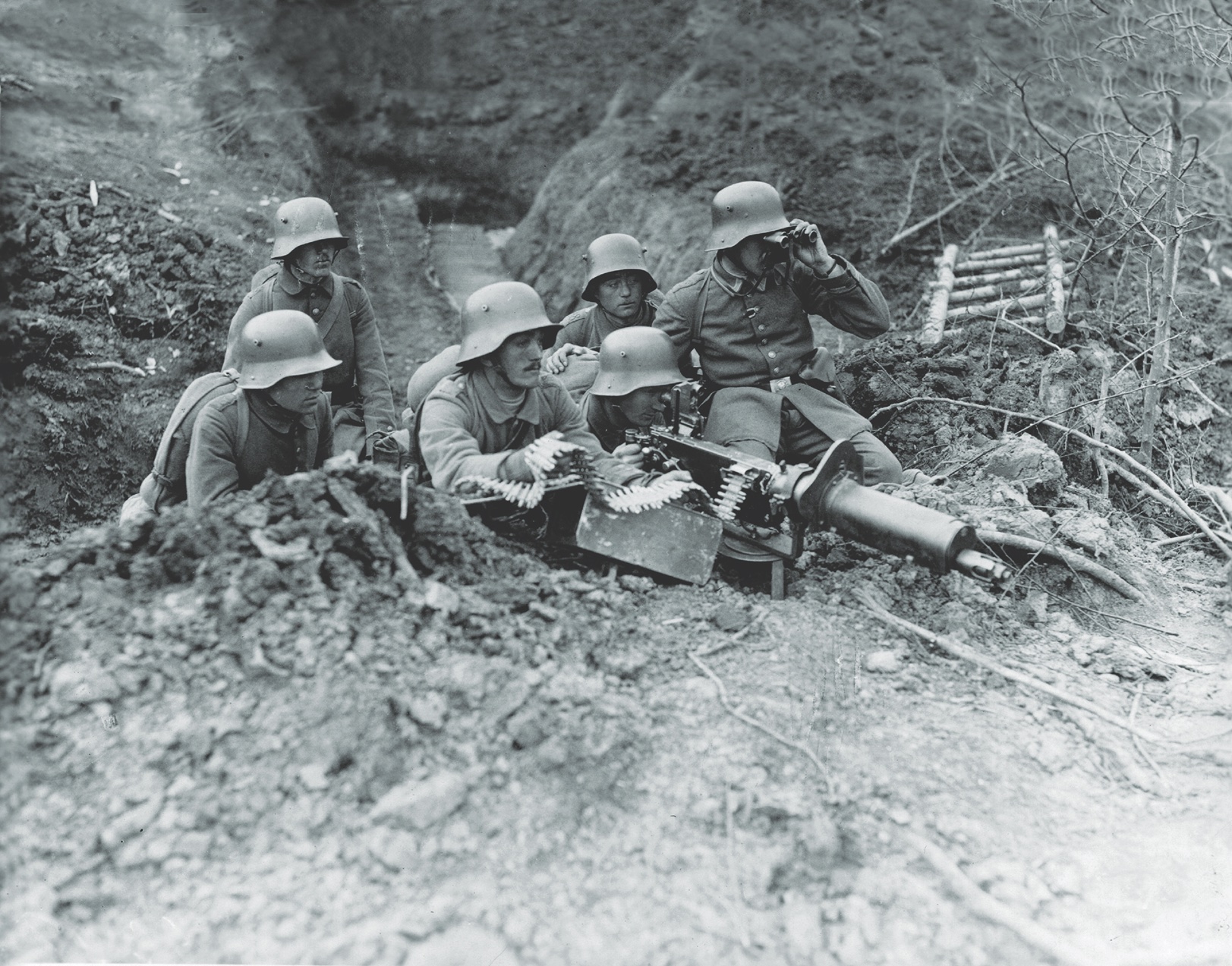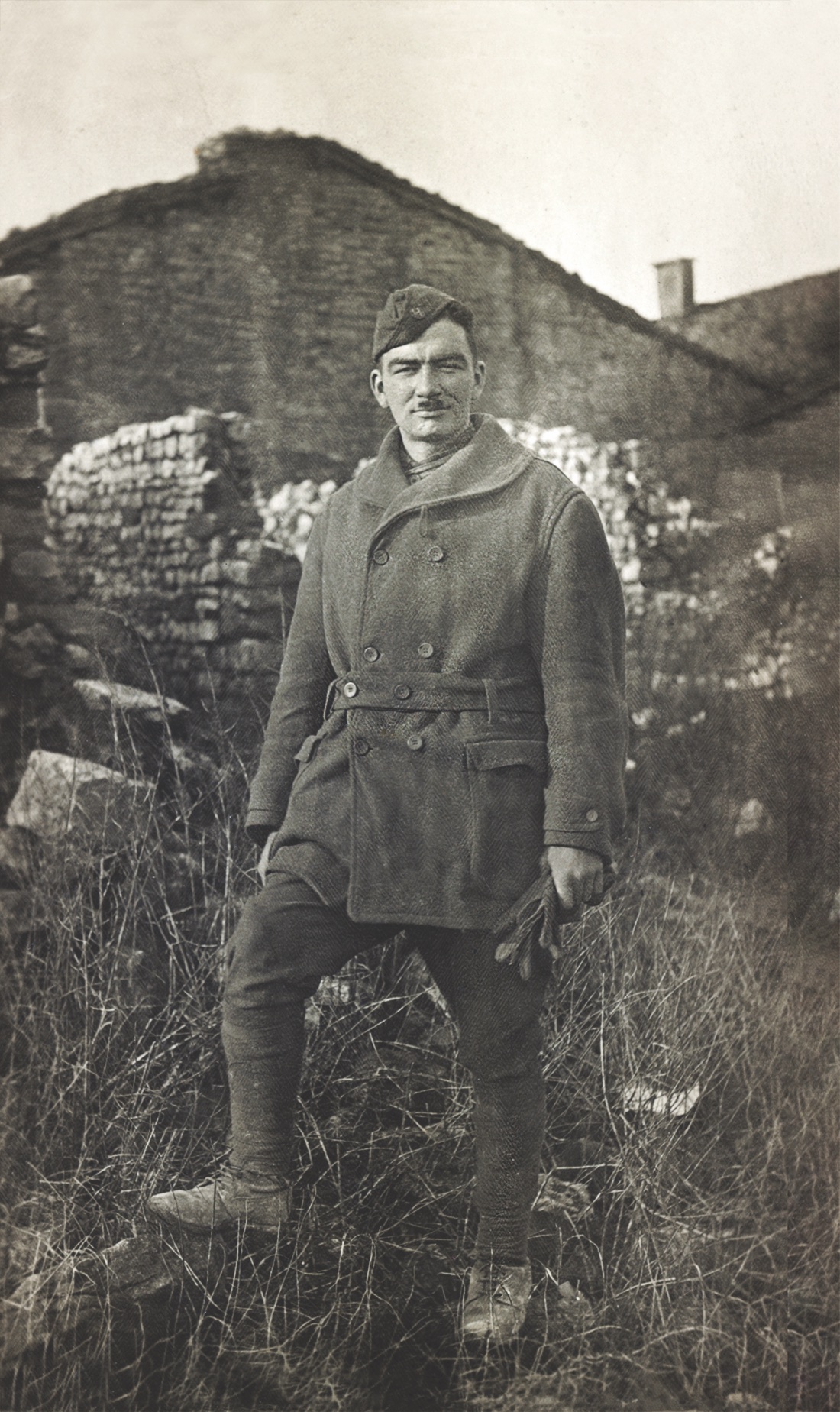Years before James M. Cain would become one of America’s most famous writers—the author of such sensational and controversial novels as The Postman Always Rings Twice, Double Indemnity, and Mildred Pierce—he pounded the pavement as a reporter for the Baltimore American and the Baltimore Sun. His fledging career as a journalist was interrupted, however, when the United States entered World War I. Drafted into the army, Cain was soon shipped to France as a private in the headquarters troop of the 79th Infantry Division, a unit raised at Camp Meade in his home state of Maryland in 1917.
In 1918, in the opening days of the General John J. Pershing’s Meuse-Argonne Offensive—a massive attack that would, it was hoped, bring an end to World War I—the 79th Division was assigned the job of capturing Montfaucon, a German stronghold and commanding observation point that towered some 300 feet above the countryside. Cain was a runner during the battle, one of the bloodiest sieges of the Meuse-Argonne Offensive, and later served as the editor of the Lorraine Cross, the 79th Division’s “trench newspaper.”
With the end of the war Cain returned to the Baltimore Sun, but not before he’d filed a report from Europe on the death of Henry N. Gunther, the 23-year-old son of German-American parents in Baltimore, who would soon become known as the last American killed in World War I.
The U.S. Army later posthumously restored Gunther’s rank of sergeant and awarded him a Divisional Citation for Gallantry in Action and the Distinguished Service Cross. Gunther’s remains were returned to the United States in 1923 after being exhumed from a military cemetery in France and interred in his family’s plot at the Most Holy Redeemer Cemetery in Baltimore. His tombstone, inscribed with his likeness and decorations, reads “highly decorated for exceptional bravery and heroic action that resulted in his death one minute before the armistice.”
As for Cain, he soon began writing short stories for the American Mercury, the celebrated magazine that H. L. Mencken, the Sun’s influential and fearless iconoclast, had founded in 1924. Cain’s first novel, The Postman Always Rings Twice, was published in 1934, and his second, Double Indemnity, was serialized in Liberty magazine in 1936.
He continued writing until his death at age 85 in 1977.
Cain’s story about Gunther’s death, reprinted here, was preceded by a short note from his editors and appeared in the March 16, 1919, edition of the Baltimore Sun.
DIED TO PROVE LOYALTY
Henry N. Gunther Felt He Was Under A Cloud
Probably Last Man Killed
Went Alone To Capture Machine Gun Nest
In The Last Minute of War.
This account of how Henry N. Gunther, 3011 Eastern avenue, was killed almost at the moment the “cease firing order” was given, is by Private James M. Cain, Headquarters Troop, Seventy-ninth Division, in France, who was formerly a reporter on The Sun. It corresponds in all essentials with the report brought to Gunther’s parents by Chaplain George F. Jonaitis, but gives some details that Father Jonaitis probably did not know of.
By Private James M. Cain
Souilly, France (By Mail), Feb. 22.—The last man to be killed in action in the Seventy-ninth Division, and perhaps in the whole American Army, was Henry N. Gunther, Company A, Three Hundred and Thirteenth Infantry. Gunther’s home was in Baltimore, and he was killed at one minute of 11 o’clock on November 11, trying to take a German machine gun position.
Until a short time before the Three Hundred and Thirteenth finished its period of training at Camplitte, Gunther was supply sergeant of his company. A few days before the regiment left for the front he wrote a letter home complaining of certain things about army life, and as this was a violation of the censorship regulations, he was reduced to the grade of private.
According to his companions, Gunther brooded a great deal over his reduction in rank, and became obsessed with a determination to make good before his officers and fellow-soldiers. Particularly he was worried because he thought himself suspected of being a German sympathizer.

The regiment went into action a few days after he was reduced, and from the start he displayed the most unusual willingness to expose himself to all sorts of risks and to go on the most dangerous kind of duty. He acquitted himself splendidly in the Montfaucon fight, and on the drive east of the Meuse he was selected to act as a company runner—particularly dangerous work, for a runner is the bearer of important messages, and must get them delivered, even if his way lies over the most exposed country.
Showed Scorn of Danger.
In the role of runner Gunther proved to be a man of the finest mettle. He repeatedly volunteered for duty when communication had to be established over terrain raked by machine guns and subject to heavy shelling. A few days before hostilities ceased he was carrying a message, when a German bullet passed through his wrist. He said nothing about his wound, however, when one of his officers, noticing his exhaustion, asked him what was the matter. Having already bound up his arm with a first-aid bandage, he replied that he was a little tired, and thought he would take a rest. The next day he reported for duty and went on as usual.
On November 11 he was still on duty as a runner. His company had been ordered to advance on Ville-Devant-Chaumont, in the extreme right of the Seventy-ninth’s sector, and several parties were already in the town. Gunther, with one or two other runners and an advanced party of riflemen from his company, was just on the outskirts. The order had already come that hostilities were to cease at 11 o’clock.
Directly ahead there was visible a German machine gun nest. Gunther, according to the men of Company A, must still have been fired by a desire to demonstrate, even at the last minute, that he was courageous and all-American. At a few minutes to 11 he announced that he was going to take that machine gun nest, and though his companions remonstrated, and told him that in a few minutes the “war would be over,” he started out, armed with a Browning automatic rifle.
Germans Waved Him Back.

When the Germans saw him coming they waved at him and called out, in such broken English as they could, to go back, that the war was over. He paid no heed to them, however, and kept on firing a shot or two from his automatic as he went. After several vain efforts to make him turn back, the Germans turned their machine gun on him, and at one minute of 11 o’clock Gunther fell dead.
The guns stopped firing at 11 o’clock—a few seconds after—and a few minutes after the German machine gun crew that had killed him came out with a stretcher and placed Gunther on it. They then carried him back to his party from Company A he had left but a short time before. They explained that they had tried to keep him from coming on, and that they had to shoot him in self-defense. They insisted on shaking hands with the Americans, after which they set Gunther down and returned to their own lines. MHQ





